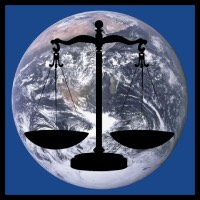At the 14th annual meeting of the World Judiciary Summit, in Lucknow, India, on December 13-16, 2013, there were obviously many memorable quotations (essentially, “pearls of wisdom”) contributed by the large number of diverse and high-level jurists and other legal scholars. Since the focus of the conference was on peace, human rights and enforceable world law, many of those quotations are of direct application to the creation of the World Court of Human Rights. Here are a few of the those (paraphrased) quotations, and some context:
Consensus
“The world government will be in the nature of a ‘federation,’ with enumerated powers limited to matters that are inherently global in nature. The sovereignty of nation states is preserved.”
Chief Justice Benjamin Odoki (Retired) of Uganda
“The time has come for all nation states to cede a small amount of their national sovereignty in the interest of the world’s greater good.”
Attributed to Jawaharlal Nehru in the 1950s
“This process needs to be accomplished through the combined voice of the world’s judiciaries.”
Echoed by many of the speakers
“Enforceable world law will promote world peace by outlawing war.”
A theme of the conference
“We need one political order of the world and one economic order of the world.”
Attributed to Kofi Annan, former Secretary General of the United Nations
“The objective of the World Court of Human Rights is to unify the procedures and the jurisprudence of the world’s collective human rights judicial systems.”
Professor Mark Oettinger, addressing the plenary session
New Jersey, USA
“International law is the law of imperfect obligation.”
Chief Justice Benjamin Odoki (Retired) of Uganda
“Fine words butter no parsnips.”
Chief Justice Carl Ashok Singh, of Guyana
“The day will come when the world will come to India in search of peace.”
Attributed to Mahatma Gandhi Kingdon
“Safety and security do not just happen. They are the result of collective effort.”
Attributed to Nelson Mandela
“Be more focused on the practicalities than the theory.”
Deputy Chief Justice Adel Omar Sherif (Egypt Constitutional Court), discussing steps toward a greater world order
“There is an intractable trend toward globalization.”
Professor Geeta Gandhi Kingdon
“We need a world language, and a world currency.”
Professor Geeta Gandhi Kingdon
“To strengthen the world system, we must eliminate the UN veto system, create an enforcement system, and create a World Court.”
Professor Geeta Gandhi Kingdon
“Evil grows in society because good people do nothing about it.”
Chief Justice Benjamin Odoki (Retired) of Uganda
“The price of liberty is eternal vigilance.”
Chief Justice Benjamin Odoki (Retired) of Uganda, quoting many
“A constitutional provision develops a national character.“
Chief Justice Mohamed Chande Othman of Tanzania
“India, the land of sages, saints and gurus.”
Speaker of the Punjab Assembly
“Tolerance is right, but only to a certain level. And when your rights are threatened, you have every right to stand up.“
A City Montessori School Headmaster, paraphrasing the Speaker of the Punjab Assembly
“Tax ‘Bads,’ not ‘Goods’.”
Jakob von Uexkull, World Future Council
